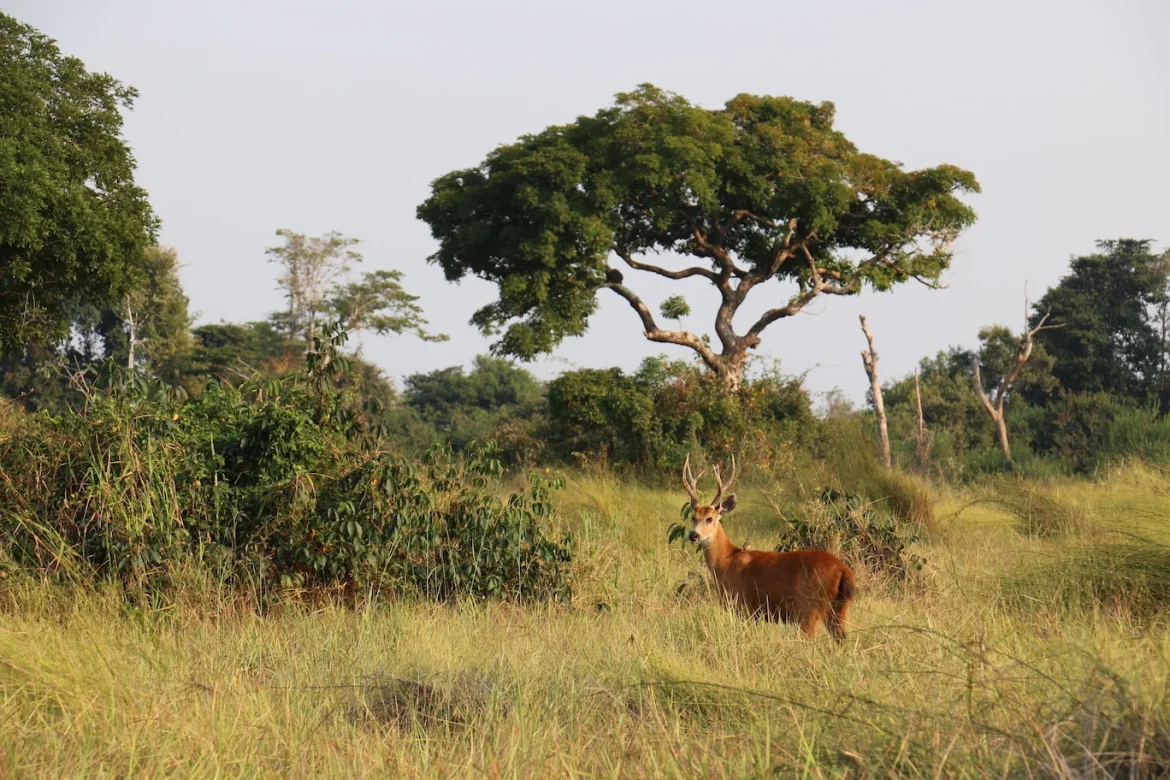Research done at the University of California, Davis and published in the journal Animal Conservation has shown that the majority of land-dwelling mammals in the Brazilian Amazon, including jaguars, ocelots, anteaters, and capybara, are threatened by climate change and the region’s anticipated savannization.
Co-authored by Rahel Sollmann, Rocha’s former advisor at UC Davis who is now at the Leibniz Institute for Zoo and Wildlife Research in Berlin, Germany, the study was funded by CAPES-Ministry of Education in Brazil, the National Geographic Society, Horodas Family Foundation for Conservation Research, The Explorers Club, alongside Wildlife Foundation, and the Hellman Foundation.
According to the study, even species that inhabit both savanna and forest habitats, like pumas and giant armadillos, are susceptible to such changes. It also demonstrates how local conservation efforts do not protect species and lands from the effects of climate change.
“We’re losing Amazon forest as we speak,” said lead author Daniel Rocha, who conducted the research as a doctoral student in the UC Davis Department of Wildlife, Fish and Conservation Biology. “The Amazon’s biodiversity is very susceptible to climate change effects. It’s not just local; it’s a global phenomenon. We cannot stop this just by law enforcement, for example. These species are more susceptible than we realized, and even protected areas can’t protect them as much as we thought.”
The pristine savanna is a unique biome that supports a diverse array of life. But “savannization” here refers to when lush rainforest gives way to a drier, open landscape that resembles a savanna but is actually a degraded forest. Local deforestation and global climate changes in temperature and precipitation favour this conversion along the southern and eastern edges of the Brazilian Amazon.
Read also: Istanbul’s mayor warns 90,000 buildings at risk if a major earthquake strikes
Arboreal species like monkeys clearly will be impacted by such changes. But the study’s authors wanted to better understand how land-based mammals are expected to fare — especially those who use both forest and savanna habitats when they have access to both.
For the study, the researchers conducted camera trap surveys of land-based mammals in four protected areas of the southern Brazilian Amazon, which is a mixture of rainforest and natural Cerrado, or savanna. Using statistical models, they quantified how 31 species were affected by the savanna habitat. They then looked for differences among species known to use mostly rainforest, savanna, or both habitats.
The results showed that only a few species preferred savanna habitats. Rocha notes that the models were based on pristine — not degraded — savanna, so the negative effects of savannization among animals will likely be even stronger.
The results indicate that if climate-driven savannization causes species to lose access to their preferred habitat, it will reduce the ability of even protected areas to safeguard wildlife. The authors say that should be considered when assessing the potential climate-change effects on these species.
Story was adapted from UCDAVIS.
